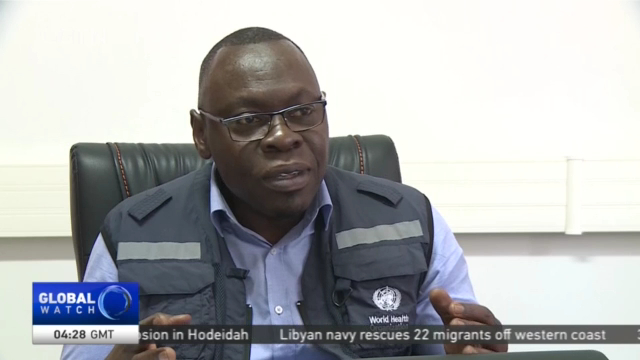
13:11, 09-Jun-2019
DRC Ebola Outbreak: Communities in affected areas urged to help in surveillance
Updated
00:01, 10-Jun-2019
02:08

The health minister in the Democratic Republic of the Congo is calling on community members in the Ebola hotspots to help in the surveillance of the outbreak by reporting their sick relatives and neighbors to health workers. This follows a report indicating that new infections are going undetected. CGTN's Chris Ocamringa has more from the capital Kinshasa.
Authorities in the DRC are battling the country's worst Ebola outbreak. More than 2000 cases have been reported in North Kivu and Ituri provinces so far. The increase in cases has been attributed to the insecurity and resistance of some community members to treatment. And that has resulted in new infections being undetected by health experts.
DR. IBRAHIMA SOCE FALL ASSISTANT DIRECTOR GENERAL, WHO "This is all related to access. If you can't investigate on time because of security problems, because of community resistance there is no way you can link new cases to contacts."
The Congolese health minister believes the solution to improving the surveillance lies with the community.
OLY ILUNGA KALENGA DRC MINISTER OF HEALTH "The following up of contacts of Ebola patients is still a difficulty we are trying to overcome. The first level of surveillance should come from the community. The people ought to inform health workers about their sick relatives and neighbours."
International organisations have stepped up the Ebola prevention work in the DRC following the increase in cases. Records from the Ministry of Health indicate that 1,373 people have died of Ebola while 522 others have been cured since August last year.
CHRIS OCAMRINGA KINSHASA, DEMOCRATIC REPUBLIC OF THE CONGO "Officials are struggling to follow the spread of Ebola largely due to attacks by armed groups in North Kivu. The World Health Organization estimates that about a quarter of cases are being missed. The global body hopes the UN's new approach of strengthening the security and political engagement will help contain the outbreak. Chris Ocamringa, CGTN, Kinshasa, DRC."

SITEMAP
Copyright © 2018 CGTN. Beijing ICP prepared NO.16065310-3
Copyright © 2018 CGTN. Beijing ICP prepared NO.16065310-3